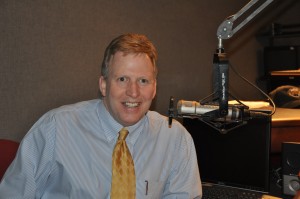For years, and especially since the Telecommunications Act of 1996 that helped create the monster, publicly held broadcast companies of today, paid infomercial programming is appearing with greater frequency across many radio and television stations in the US. Indeed, the challenges of a ‘do whatever it takes to keep the stock price high’ culture has created a rich environment for long-form infomercial programs. Previously relegated to only the ‘B and C Level’ stations in a market, paid programming has now made it to the program schedules of the biggest, top-rated properties. One senior executive I used to report to referred to paid programs as the ‘crack cocaine of radio.” As he used to put it, “Once you start (accepting infomercials) you can’t stop and you don’t tell your friends about it.”
Colorful metaphors aside, paid programming is the reality. Still, it doesn’t have to be broadcasting’s ‘crack cocaine habit’. In this article, I’ll analyze best practices in paid programming from both the broadcaster and client perspective. If we change our way of thinking, it’s possible to make paid programming a better fit.
Programmers–Protect Your Product: In too many cases, GMs and PDs have simply pitched the keys to the station to the sales department. Frustrated and often overworked program directors have thrown up their hands and given up with regard to protecting the on-air product. As a result, weekend radio and television often looks like Fred Sanford’s back yard, filled with junk. Programmers, even with it’s perceived as challenging sales and even the GM, need to fight to protect the integrity of the airwaves.
No More Infomercials: Lumping all paid programming together as ‘Infomercials’ is a mistake. While there will always be health programs pitching the latest colon cleanse or sexual performance miracle, paid programming can also be topical, well produced, local, live-sounding and consistent in on-air quality with the best Monday-Friday programs. At McQ Media Inc, we refer to our paid programming projects as ‘pre-sponsored programming’ instead of infomercials. And that’s because the client or product pitch/call-to-action is just part of the total program equation. When stations and sponsors focus on producing content that informs and entertains as well as sells, the quality of paid programming will increase exponentially. In fact, when wrapped up properly, there’s no reason that pre-sponsored programs can’t be destination programs that listeners seek out regularly.
Sellers: Become Programmers: Sellers need to adopt a programming philosophy. They need to understand that a client with a pile of cash is not always the best fit for a local program. At McQ Media we audition clients for both radio and television projects before we approach the media. If a business owner is able to communicate in a clear and compelling way, oftentimes they can make the transition to being a host or contributor. But it’s never as easy as just putting a client on the air. More on that in a moment.
Don’t Overload in Financial Programs: Ok, we all know that the margins in the financial and mortgage categories make for very profitable station-client partnerships. In fact, many stations have ‘top of the rate card’ pricing just for financial planners. As profitable as the category is, it’s essential that stations not get greedy. One dimensional weekend programming hurts everyone. The audience burns out and clients don’t get results.
Utilize Co-Hosts in Programs: Even clients who have potential to be on-air are often thrown to the wolves without adequate training. Doing this is bad for the station and the client. At the very least, most new clients to long-form programming need co-host support for the first year of their program. In fact, because a multi-host program sounds better, many clients will opt to keep this kind of program structure for the long-term. Most stations have air-talent who are itching to earn a talent fee.
AQH Management: During the week, stations go to great lengths to maintain cume and quarter hour audience levels through promos and liners that promote what’s coming up. As a programmer, I used to tell my jocks to imagine the listener in the car who is getting ready to punch to another station unless we earn their attention. The same clock management that talk show hosts use needs to be used with pre-sponsored programs.
Show Prep: The best high school, college and professional football teams script their first 2 or 3 drives of every game. Likewise, a pre-sponsored program should have a complete and detailed road map that details what each segment is trying to do. Show prep shouldn’t be confused as scripting a program. Unless it’s for a specific offer or other content that needs to be delivered in exact fashion, scripts are not authentic.
Production Quality: Sadly, the production effort that goes into most weekend programs consists of the production director finding a music bed and VO talent to do one-time-only, generic beds that become the permanent tracks for that program. At McQ Media, we feel that the production elements for a program are the personality of the program. They need to be updated regularly to reflect the show’s content, the time of year and other current events.
Maintain Station Sound: On our McQ Media produced programs, we ask for stations to run full weather, traffic and news support within our programming. Our goal is not to sound like an outside program but rather, a program that’s part of the team of that station. We also encourage programmers to run station promos and contesting within our productions to give them a real sound.
Air Check Sessions: Just as students need tests and assessments, the hosts of pre-sponsored paid programs need to receive regular feedback regarding how they’re doing. At McQ Media, many of our clients have programs on top 10 market stations. I like to get program director feedback at least once per year. Programmers are in trenches relative to ratings methodology and can help tremendously.
Tap Into the Power of Spot: Campaigns that include only a pre-sponsored paid program on air just scratch the surface relative to results. Put another way, running just a program without 30 or 60 second spot support is kind of like driving your car only in first gear. You’ll get to your destination but it takes much longer. Combining a paid program with a strategically placed spot and promotional schedule will put results into a higher gear.
Compliance—The Devil is in the Details: Since many programs deal in areas of health and finance, it’s essential for both the station and the advertiser to make sure you’re protecting your company against complaints and litigation. I still hear stations in major markets that don’t run appropriate disclaimers before paid programming. Similarly, clients have a responsibility to comply with government regulations, often originating from the FDA and SEC, regarding requirements for broadcast content. At McQ Media we can help you understand and comply with compliance requirements.
McQ Media specializes in helping our clients produce long-form programming that gets results and sounds great on the air. Several of the program directors we’ve worked with in major markets have called our content the best paid programming they’ve ever heard. To hear program examples or learn more about McQ Media and our commitment to quality program development, please contact us.
-Pete Thomson
President/CEO – McQ Media
Email: pwt@McQMedia.us
Editor’s Note: Pete Thomson is president and chief executive officer of McQ Media, a full service advertising and marketing firm based in Dallas, Texas. Previously, Thomson has worked in broadcast management, sales, programming and creative services.

